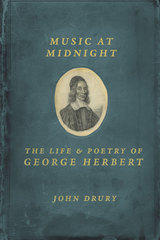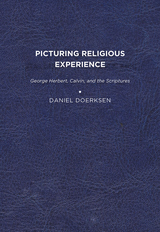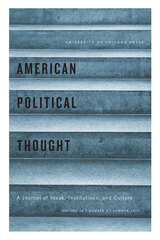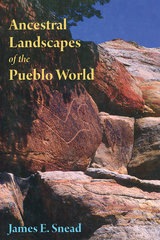

As Drury writes in his preface, Herbert lived “a quiet life with a crisis in the middle of it.” Drury follows Herbert from his academic success as a young man, seemingly destined for a career at court, through his abandonment of those hopes, his devotion to the restoration of a church in Huntingdonshire, and his final years as a country parson. Because Herbert’s work was only published posthumously, it has always been difficult to know when or in what context Herbert wrote his poems. But Drury skillfully places readings of the poems into his narrative at biographically credible moments, allowing us to appreciate not only Herbert’s frame of mind while writing, but also the society that produced it. A sensitive critic of Herbert’s poems as well as a theologian, Drury does full justice to the spiritual dimension of Herbert’s work. In addition, he reveals the occasions of sorrow, happiness, regret, and hope that Herbert captured in his poetry and that led T. S. Eliot to write, “What we can confidently believe is that every poem . . . is true to the poet’s experience.”
Painting a picture of a man torn between worldly ambition and spiritual life, Music at Midnight is an eloquent biography that breathes new life into some of the greatest English poems ever written.

Published by University of Delaware Press. Distributed worldwide by Rutgers University Press.

The transparent beauty and effortless grace of George Herbert's poetry have made it seem almost devoid of art. In this comprehensive reading of Herbert, Helen Vendler reveals the complexity inherent in the apparent simplicity of his lyrics. Herbert appears here, both in introspective and in devotional verse, as a poet of universal feeling whose work can be given a human interpretation independent of any religious conviction.
Very nearly all of Herbert's poems are treated in this finely written, forcefully argued study. By looking at the poet's less successful attempts as well as at his best work, Vendler is able to trace his surest line of development in the various modes and forms in which he worked. Comparisons with the work of his adapters and imitators make apparent the perfection and finish of his lines, their interior intellectual and psychological harmony.

“I cannot imagine that anybody who cares for Herbert, or more generally for poetry, will fail to learn something from this book.”
—Frank Kermode, New York Times Book Review
A comprehensive reevaluation of the eminent metaphysical poet discovers the human passions warring with his saintly visions of divine harmony.
George Herbert’s admission to the canon of English poetry was hard won. Though acclaimed in his own time as an exemplar of pious conformity to Anglican orthodoxies, the distinctive personality and profound creativity of Herbert’s lyrics went largely unremarked. Even after he was rediscovered—first by Samuel Taylor Coleridge, later by T. S. Eliot—he was seen as exceptional mainly for the depth of his religious conviction: inspiring to devout Christians, but otherwise a resoundingly minor poet.
Helen Vendler gives us a different, more expansive Herbert. In place of a doctrinal poet seeking the ideal form for conventional religious beliefs, she shows us one whose exuberant search for experiential truth exceeds any dogmatic content. Scripture and traditional liturgies are his starting point, but he is propelled by a restless intellect that is never satisfied with received wisdom. “My thoughts,” Herbert writes, “are all a case of knives.” Yet his faith remains unshaken. Herbert’s singular genius, Vendler argues, is his ability to embody in verse the unresolved tensions between customary belief and personal meaning, between self-effacing deference to God and egotistic protest, between anodyne cliché and trenchant insight. His poems constantly double back, reject their initial premises, and redefine their topic to approach, always unsteadily, the truth of his own feeling.
Covering nearly all of Herbert’s poetry, from his devotional verse to his allegorical and speculative lyrics, Vendler demonstrates his incomparable significance, not only as a Christian poet but also as a poet of universal feeling—one to be prized by any reader moved by an authentic voice.
READERS
Browse our collection.
PUBLISHERS
See BiblioVault's publisher services.
STUDENT SERVICES
Files for college accessibility offices.
UChicago Accessibility Resources
home | accessibility | search | about | contact us
BiblioVault ® 2001 - 2025
The University of Chicago Press









